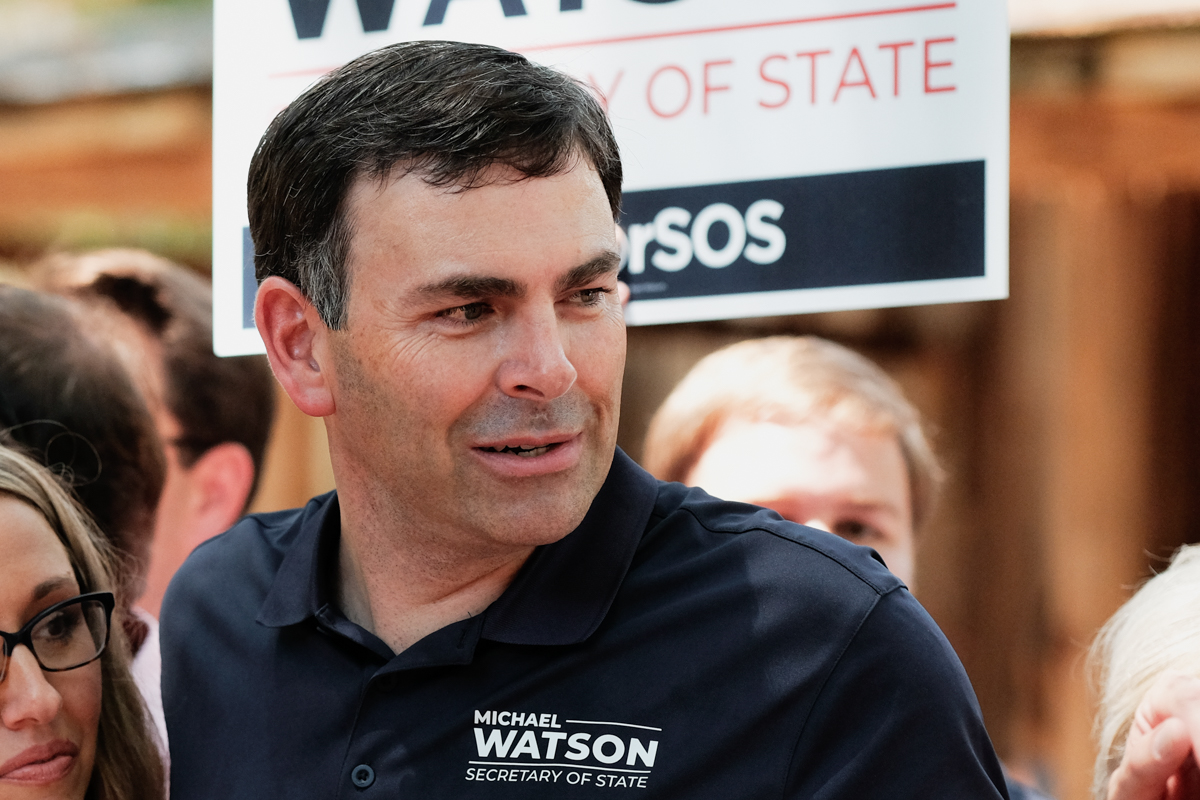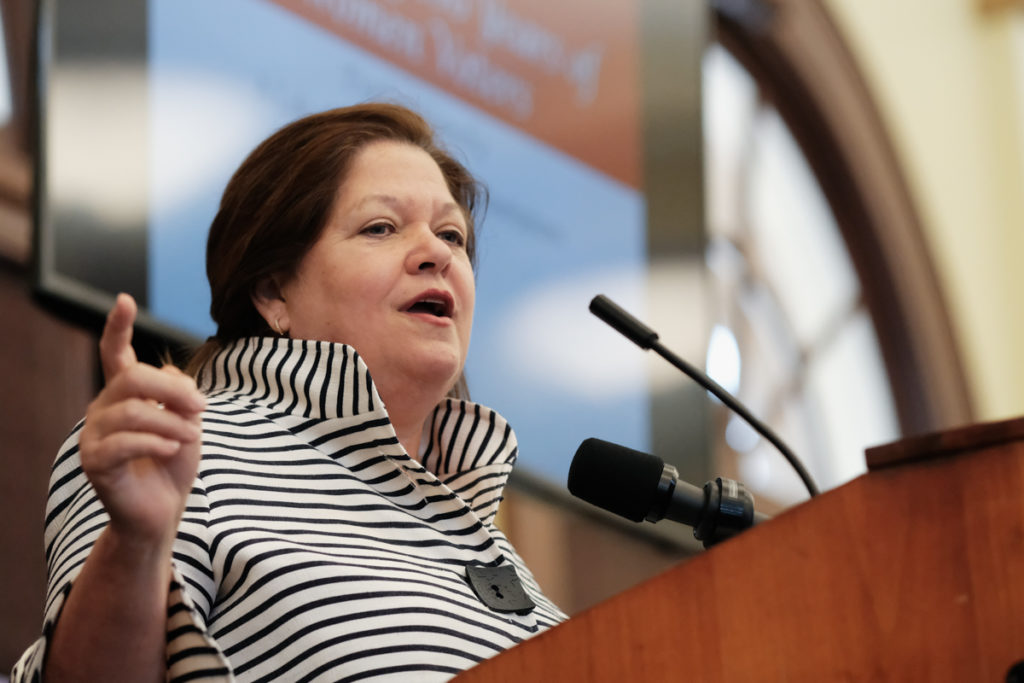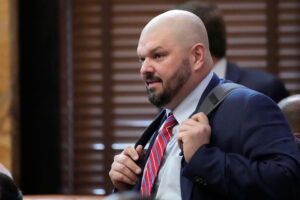Mississippi voters who have pre-existing health conditions “that cause COVID-19 to present a greater risk of severe illness or death” still must vote in person in the Nov. 3 election unless that illness qualifies as a “physical disability,” the Mississippi Supreme Court ruled today.
“Having a pre-existing condition that puts a voter at higher risk does not automatically create a temporary disability for absentee voting purposes,” Justice Dawn Beam wrote for the majority in today’s ruling.
Quick Appeal by Secretary of State Watson
Earlier this month, a Hinds County Chancery Court ruled that Mississippi law allows voters with such conditions or who are under guidance from a doctor to avoid crowded public spaces, like polling places, may vote absentee—including plaintiffs with medical conditions including asthma, diabetes and kidney disease.
That court pointed to the Mississippi Election Code, which allows a voter to mail an absentee if they have a “physical disability” and their “attendance at the polling place could reasonably cause danger to himself, herself, or others.”
Mississippi Secretary of State Michael Watson quickly appealed that ruling to the state’s high court, saying in a statement that he wanted “clarification” for circuit clerks statewide on which illnesses qualify as a disability under the absentee voting law.
In a statement shortly after today’s decision, the American Civil Liberties Union of Mississippi and the Mississippi Center for Justice, who brought the lawsuit on behalf of the plaintiffs, said they were “pleased” that the court upheld absentee voting rights for “some” voters with high-risk conditions.
“But we are disappointed that voters without such conditions are being forced to ignore public health guidance and required to vote in person,” the joint statement reads.
‘Essentially Smoke and Mirrors’
Justices Leslie D. King and James W. Kitchens wrote a separate opinion, agreeing in part with the majority opinion, but dissenting in other parts. King and Kitchens criticized the court’s claim that it was “reversing” the Hinds court’s ruling.
“The Secretary of State’s appeal is essentially smoke and mirrors: it asks this court to reverse the chancery court’s ruling and to render the same holding as did the chancery court. This court injudiciously takes the bait,” King and Kitchens wrote.
The majority opinion claimed that “the chancery court’s order erred to the extent it declared that (Mississippi voting law) “permits any voter with pre-existing conditions that cause COVID-19 to present a greater risk of severe illness or death to vote by absentee ballot during the COVID-19 pandemic.’”
The lower court ruling did not say that, though, King and Kitchens wrote, pointing out that the Hinds ruling granted plaintiffs with pre-existing physical disabilities the right to vote—the same group whose right to vote the State Supreme Court affirmed today.

“The Secretary of State was clear that he agrees with this position, yet, he inexplicably twisted the chancery court’s clear order in an attempt to render it much broader than it actually is,” the dissenting justices wrote. “This Court enabled the manipulation of the chancery court’s order, and, unlike the Secretary of State, goes even further in its failure to clarify that those with a pre-existing condition that constitutes a physical disability qualify for an absentee ballot.”
The State Supreme Court ruling does not define which illnesses count as “physical disabilities” for absentee voting purposes in the pandemic, but it also does not override the chancery court’s determination that COVID-19-vulnerable plaintiffs with illnesses like asthma and kidney disease qualify.
In the majority opinion, Justice Beam wrote that “voters are required to make a good-faith determination that they qualify before executing their absentee forms.”
“Local officials are likewise obligated to act in good faith when ensuring that only authorized voters apply for and cast absentee ballots in the manner prescribed by law,” Beam wrote.
Doctor Must Order Quarantine, Not Just Recommend It
Earlier this year, the Mississippi Legislature updated the law to allow people to vote absentee if they are under a “physician-imposed quarantine” or caring for someone who is under a “physician-imposed quarantine.”
The chancery court determined that “physician-imposed quarantine” could include people who have received recommendation or guidance from their physician to quarantine. Today’s State Supreme Court ruling did reverse that, though, saying such voters must have received “a directive issued by a duly-authorized physician that orders a voter to quarantine, not mere ‘guidance’ or a ‘recommendation.’”
In their joint statement today, the ACLU and Mississippi Center for Justice urged the Legislature to “go back into session and take action to protect vulnerable people during this public health crisis.” Legislators could expand in-person absentee voting or allow early in-person voting outdoors on Saturdays in October to avoid crowded polling precincts and allow for a “setting where COVID-19 is not so easily transferred,” the joint statement suggested.
Across the country, other states have allowed no-excuse absentee voting, including Mississippi’s neighbor to the east, Alabama. Some states have also adopted universal mail-in voting to make voting safer. In Louisiana, Mississippi’s neighbor to the west, voters will be able to begin voting early in late October—14 days before the election.
In their statement, the ACLU and the Mississippi Center for Justice urged “people who are required to vote on Election Day” to “try to vote during hours when fewer people are at the polls, which means avoiding early morning hours, lunchtime, and late afternoon and evening.”










